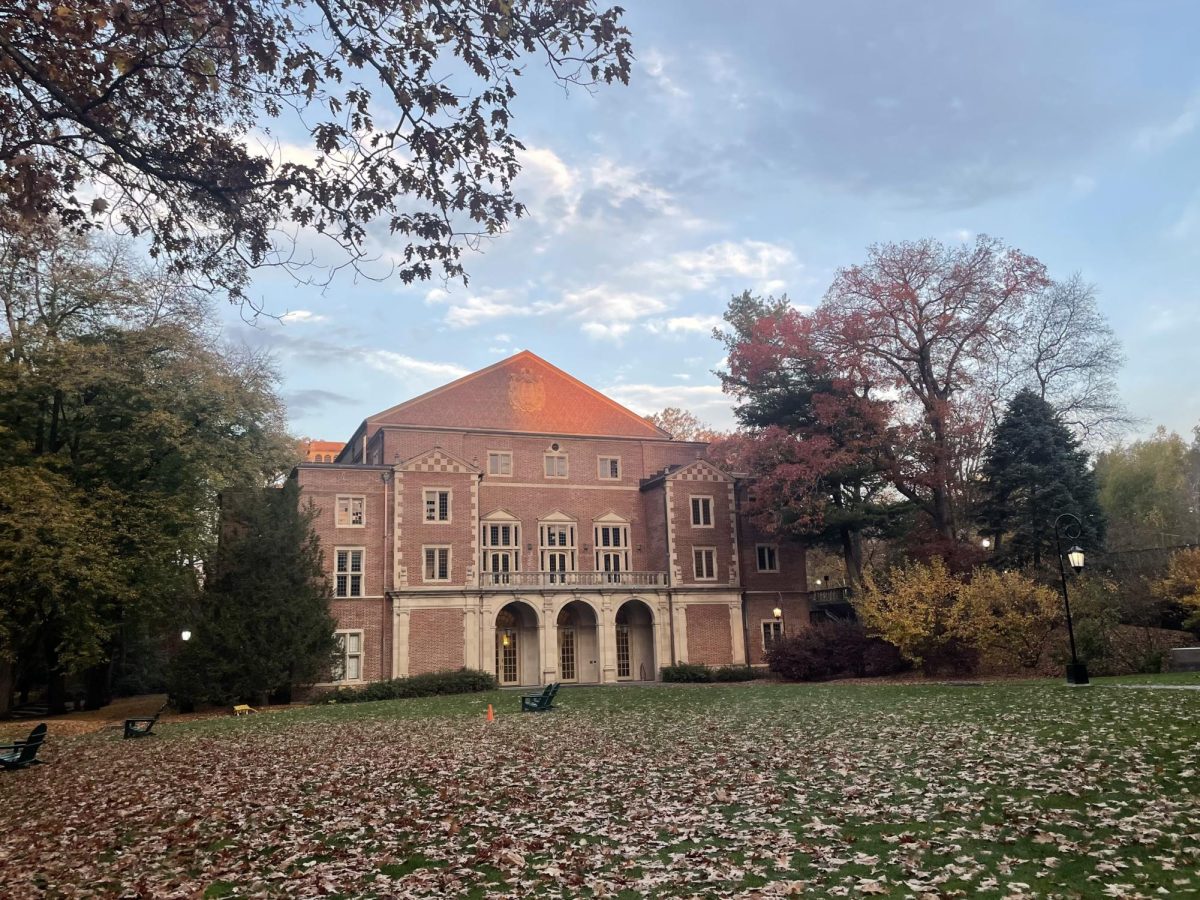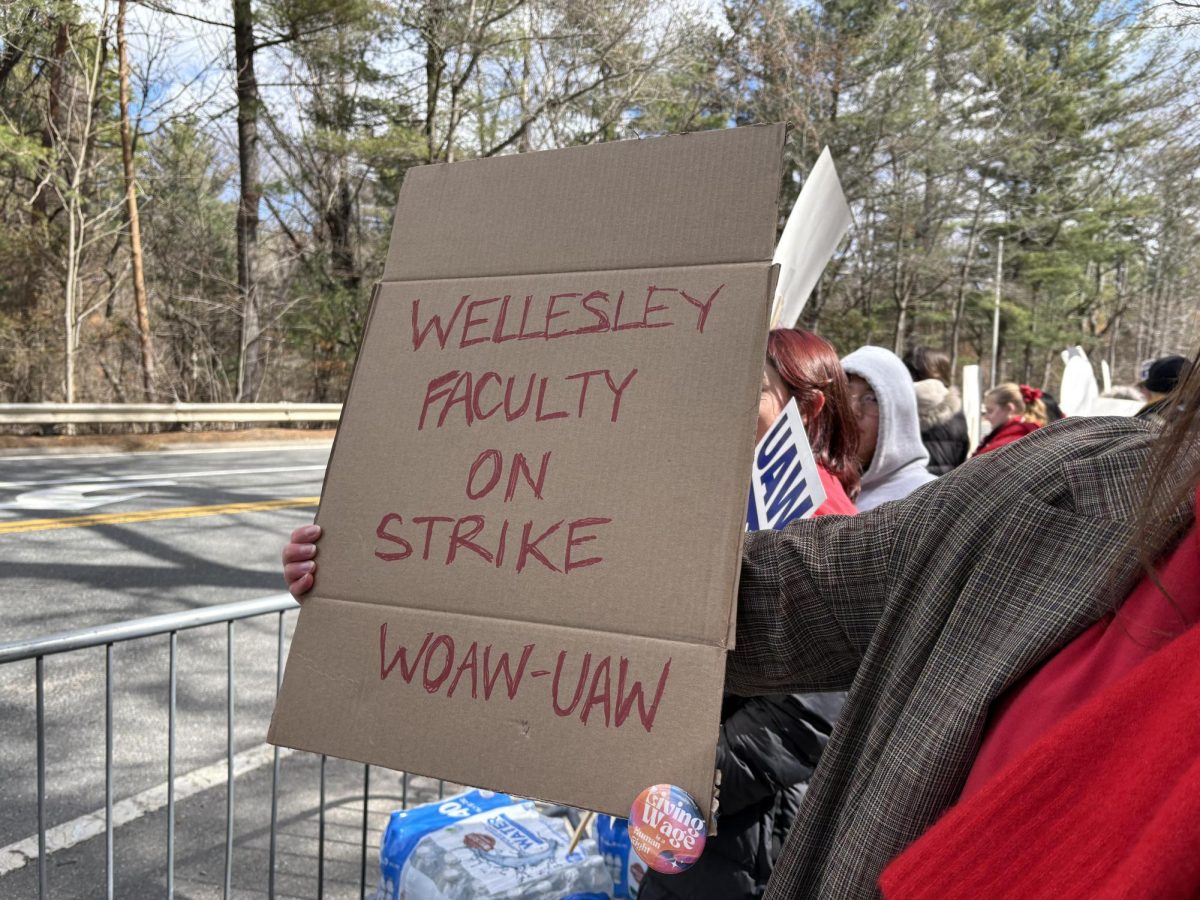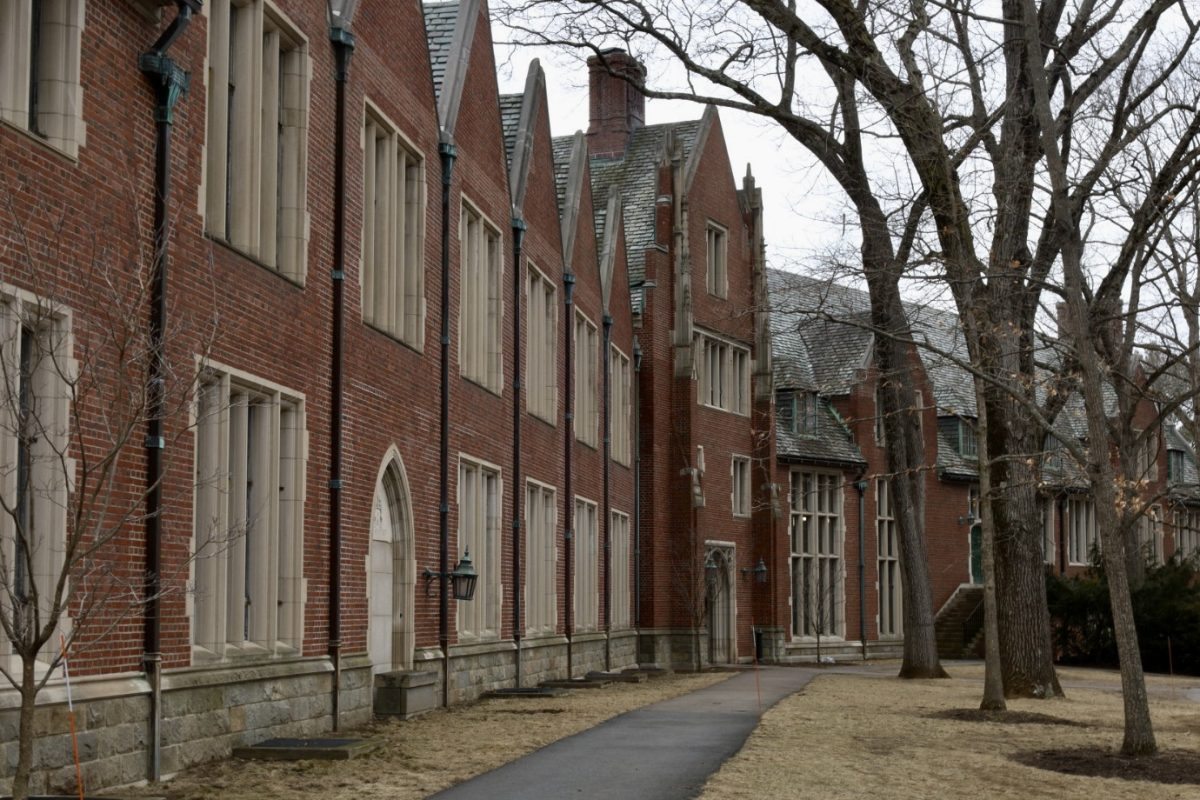The views and opinions expressed in the article do not represent the views of the reporters or The Wellesley News.
American colleges, including Wellesley, continue to educate students and promote conversations in the context of the Israel-Hamas war. The latest installment of the Pluralism Initiative brought Dara Horn, an award-winning Jewish author to speak on her essay collection, “People Love Dead Jews,” and antisemitism on campuses on Tuesday, Feb. 11.
Horn has written five novels and nonfiction essay collections and has taught at Sarah Lawrence College, Yeshiva University and Harvard University on Yiddish and Hebrew literature.
About 30 audience members, including College President Paula Johnson, professors, and students, listened to Horn in a conversation moderated by the College Jewish Chaplain, Rabbi Dena Bodian at Alumnae Hall.
The event was organized by the Pluralism Initiative, which seeks to encourage conversation about contentious topics across diverse perspectives at Wellesley. The initiative previously held other events discussing UFOs, class, status and luxury beliefs, and how to define Zionism.
Beginning the talk, Bodian first asked Horn’s motivations for writing “People Love Dead Jews.” Horn spoke about how she was only receiving requests to write about the violence or tragedy of the Jewish community, but not their living culture.
“People love dead Jews, living Jews not so much,” Horn said. “Jewish people are only acceptable in a society if they have no power, whether that means they are socially impotent or dead.”
After Oct. 7, Horn has been vocal in commenting on antisemitism at American universities and colleges. She served on former Harvard President Claudine Gay’s Antisemitism Advisory Committee and testified at Congress. During her short tenure, she realized that “the way people are educated about [antisemitism] is designed to obscure it.”
“There is zero understanding in the American public about who Jews really are,” said Horn. “Jews were a type of social group… originally a joinable tribal group with a shared history, homeland and culture.”
Continuing the conversation about antisemitism on college campuses, a student, identifying as Jewish, asked Horn if she had any advice for students “who feel isolated from their Jewish identity while students continue to protest against the only Jewish state.”
Horn said she often heard from Jewish students that they were afraid to speak out of fear of their dorm rooms being vandalized, professors throwing them out of class for being Israeli, and being chased across campus.
“There’s no ambiguity here…It’s just harassment of Jewish students,” said Horn. “This is an organized campaign to push Jews out of public life.”
Horn urged Jewish students to stand against the harassment, calling situations on campuses a “hate movement” and irrelevant to the war in Gaza.
Elizabeth Hollman ’28 questioned Horn’s conflation of Jewish identity with support of the state of Israel and asked how Horn felt about “Palestinians resistance to apartheid in Israel.”
Horn responded by arguing that the anti-Zionist position among Jewish Americans is an “extremely unpopular one” and comes from “a place of extreme privilege.”
According to a Pew Research Survey, 82% of Jewish adults in the United States said caring about Israel is an essential or important part of what being Jewish means to them. However, only 48% of those ages 18-29 said they felt emotionally connected to Israel, compared to two-thirds of Jewish Americans 65 and older.
She concluded by stressing the importance of dialogue between both sides, particularly Palestinians and Zionists, citing Palestinian politician Samer Sinijlawi as an example.
“Samer Sinijlawi is not a Zionist, but he talks to Zionists because he’s not a bigot,” said Horn. “Students who are interested in this topic should be interested in building the future.”
Same Day, Different Perspective
On the same day, the Middle Eastern Studies Department organized a screening of “Bye Bye Tiberias” by Palestinian filmmaker Lina Soualem, and a Q&A with her, beginning immediately after the film screened.
Professor Liza Oliver made it clear at the beginning of Horn’s event that it was meant to be a space for constructive dialogue, and would end five minutes earlier for students who might also wish to attend the film screening.
She also sent an email explaining that both events were not deliberately scheduled as “antagonistic, counter-programs,” but carefully coordinated for students to attend both.
The Pluralism Initiative, Middle Eastern Studies Department, and Jewish Studies Department “have been and continue to be close collaborators in programming,” according to Oliver.
However, there seemed to be little overlap between those who attended the Pluralism Initiative event and the movie screening. Those who were at the talk commented that they had other commitments preventing them from attending the screening, and those at the screening commented that they were not aware of the talk.
Mixed Reactions
Wellesley students had mixed reactions to Horn’s event on campus. The News spoke to two students after the event. Both students requested anonymity out of fear of retribution, harassment or doxxing.
Days before Feb. 11, there were posts circulating on social media platforms protesting against Horn. The first and original post read, “‘Inspiring’ quotes from Dara Horn include if the Israelis wanted to commit genocide, there would be no one there. Shame on her.”
The post was in reference to Horn’s statement in a podcast clip from an episode of Jen Rubin’s Green Room. Wendy*, the student who first posted, said she was motivated to make sure this information was known to Wellesley students.
While Wendy believed there are times when you should listen to those with different views, she noted that people should not say it is important to hear people from different perspectives “as a blanket statement.”
“If you’re inviting people who are saying ethnic cleansing isn’t bad, [the Israel-Palestine conflict] isn’t even a genocide in the first place, it’s very moral warfare — those kinds of things are very hurtful, especially for the Palestinian students on campus,” Wendy said.
On the other hand, Willa*, a student who asked Horn the first question, said she felt supported by Horn as a Jewish student.
“I felt really honored to be in the presence of someone who is so educated and so eloquent,” said Willa, “I felt that it was a perspective that hadn’t really been shared on campus, and it’s always great to have a new perspective.”
On the other hand, she was disappointed that the turnout was low for the event.
“Maybe Wellesley students aren’t ready for this conversation yet,” said Willa. “I want to understand why that is, and I want to understand why or how we can open up the floor for more diverse conversations on campus.”
Hollman, who questioned Horn’s perspectives during the Q&A session, attended the talk to embrace the space that the Pluralism Initiative provides.
“I knew that people had a reluctance to go because of what they felt was going to be kind of a one-sided discussion,” said Hollman. “I wanted to go and make sure that if the topic did come up, that there were other views represented. You know, it’s the Pluralism Initiative.”
Hollman was motivated to ask her question after she thought that “there was some nuance that wasn’t being represented” in Horn’s answer to the first student’s question.
When it comes to any conflict, Hollman feels that the best way to solve it is for both sides to talk and learn from one another.
“Dara Horn said during the talk that people refuse to speak to each other. I don’t know if I’m being naive, but I feel like that’s never a good way to solve a problem,” said Hollman. “If all sides are coming into it thinking that they can learn something, then we’re going to be able to solve problems better.”
*Student names have been anonymized with a pseudonym.
Contact the editors responsible for this story: Sazma Sarwar and Valida Pau



